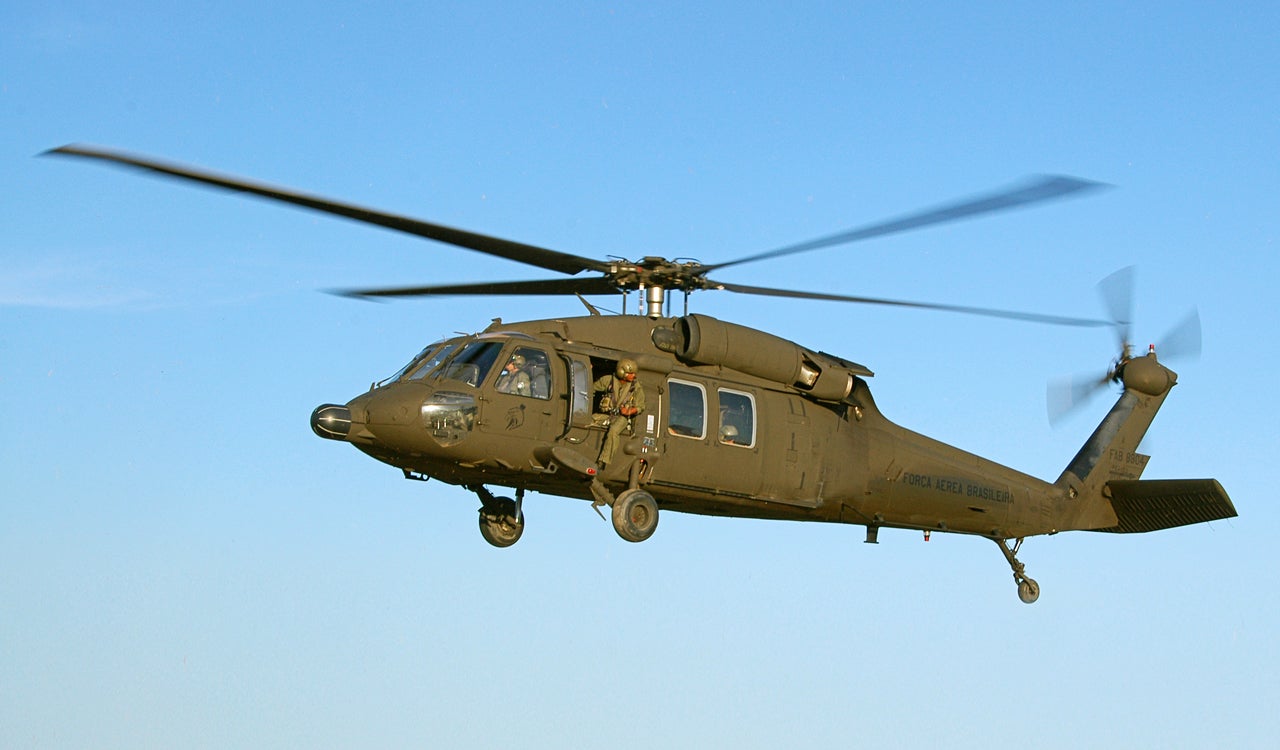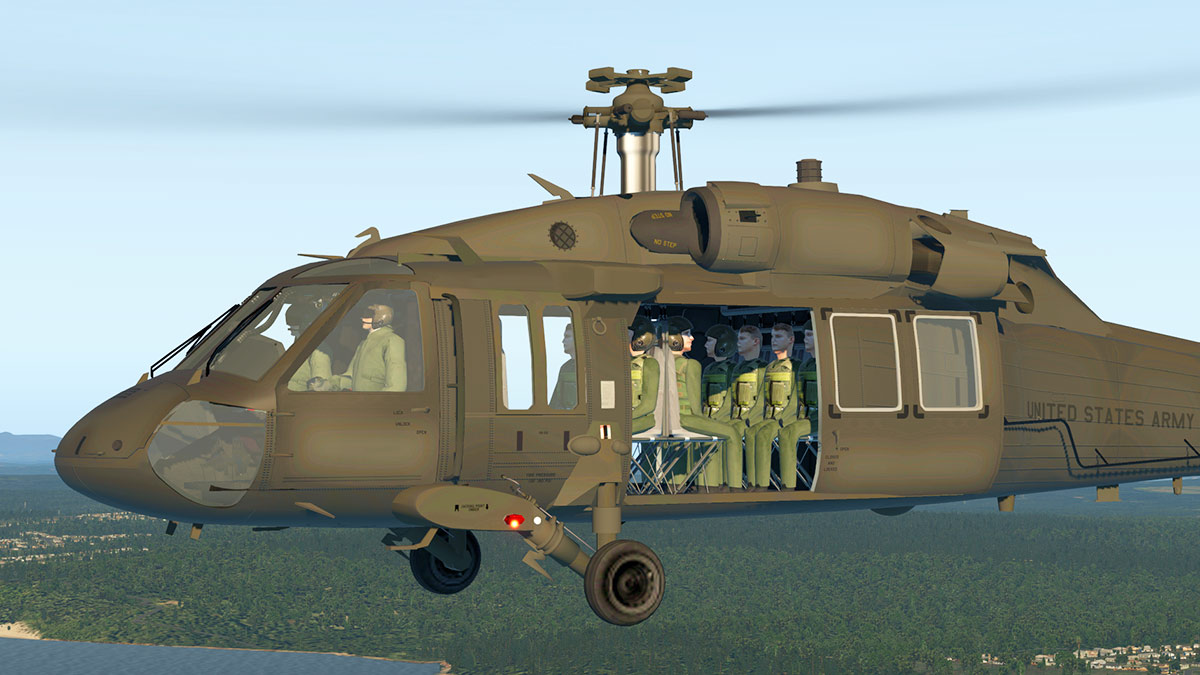Maintenance and Upkeep for UH 60 Helicopters
Maintenance and Upkeep for UH 60 Helicopters
Blog Article
The Effect of Sustainable Practices on the Future of Airplane Operations and Emissions Reduction
As the aeronautics industry deals with raising analysis over its environmental influence, the adoption of lasting techniques arises as an essential pathway toward future aircraft procedures and discharges decrease. Innovations in sustainable air travel fuels and improvements in hybrid propulsion innovations stand at the center of this change, promising considerable reductions in greenhouse gas discharges.

Summary of Lasting Practices
Sustainable techniques in aircraft operations include a variety of techniques targeted at decreasing ecological impact while preserving operational efficiency. These techniques are vital in the aeronautics industry's commitment to reducing its carbon impact and sticking to worldwide ecological requirements. Trick initiatives consist of maximizing flight paths to decrease gas usage, boosting maintenance procedures to guarantee aircraft run at peak efficiency, and implementing sophisticated modern technologies such as winglets and lightweight products that boost the rules of aerodynamics.

Educating and involving staff on sustainability techniques likewise play an important duty, fostering a culture of ecological obligation within organizations. In general, the integration of these lasting techniques not just helps in reducing discharges however likewise boosts the long-term feasibility of the aviation market, guaranteeing it meets the demands of both clients and governing bodies while adding to worldwide sustainability goals.
Cutting-edge Gas Alternatives
Numerous ingenious fuel alternatives are becoming pivotal remedies to reduce the aviation market's dependence on standard nonrenewable fuel sources. Amongst these choices, Sustainable Air travel Gas (SAFs) have obtained substantial interest as a result of their possible to lower lifecycle greenhouse gas exhausts by up to 80% contrasted to standard jet gas. SAFs are acquired from numerous feedstocks, consisting of waste oils, farming residues, and also algae, making them a flexible choice for the market.
An additional promising alternative is hydrogen fuel, which, when used in gas cells, generates just water vapor as a by-product. This zero-emission prospective presents a considerable chance for decarbonizing flight operations, particularly for short-haul flights and regional airplane. In addition, electrical propulsion systems are being checked out, leveraging battery innovation to power aircraft. While current battery capacity restrictions range and payload, recurring advancements might quickly render electric flights practical for particular applications - uh 60.
Lastly, biofuels originated from biomass are being investigated, supplying an eco-friendly choice that can be mixed with conventional gas. Jointly, these innovative gas alternatives stand for a crucial action towards accomplishing a lasting aeronautics environment, aligning with international discharges reduction targets and improving the sector's environmental stewardship.
Technical Innovations in Air Travel

Exactly how can technical advancements improve the future of aviation? The integration of innovative innovations is critical in changing aircraft operations, enhancing effectiveness, and decreasing emissions. Developments such as electric and hybrid propulsion systems go to the leading edge, encouraging significant reductions in fuel usage and greenhouse gas emissions. These systems utilize improvements in battery modern technology and power monitoring, making it possible for airplane to run with a reduced ecological footprint.
Moreover, the execution of sophisticated materials, such as lightweight composites, adds to boosted the rules of aerodynamics and fuel performance. Using artificial intelligence and artificial intelligence in trip operations enhances course preparation and decreases gas burn by enabling real-time adjustments based on climate and website traffic problems. Furthermore, the advancement of autonomous and remotely piloted airplane systems stands to revolutionize freight and traveler transport, potentially boosting efficiency while minimizing human mistake.
Furthermore, lasting aeronautics technologies, consisting of innovative air web traffic administration systems, can minimize and enhance procedures congestion, leading to lower emissions during trip. These advancements collectively represent a paradigm change in air travel, assuring a future where sustainability and functional effectiveness are intertwined, therefore supporting the industry's commitment to minimizing its ecological effect.

Regulatory Structure and Compliance
In light of the growing emphasis on ecological stewardship within the aviation market, the governing structure governing airplane operations is developing to promote sustainable methods. Regulatory bodies, such as the International Civil Aeronautics Company (ICAO) and numerous national air travel authorities, are introducing stringent standards focused on minimizing discharges and boosting operational effectiveness.
These regulations often include the fostering of Sustainable Air travel Gas (SAF), which has actually been acknowledged as a vital part in attaining reduced carbon impacts. Conformity with these regulations calls for airline companies to implement operational methods and innovative innovations, such as maximized trip courses and enhanced air web traffic monitoring, to reduce fuel consumption.
Additionally, the enforcement of emissions trading plans and carbon countering efforts is becoming significantly common, engaging airline companies to keep an eye on and report their emissions accurately. Non-compliance can result in considerable penalties, therefore pushing operators to prioritize sustainability in their service models.
Ultimately, look at more info the advancing regulative landscape not just drives development and financial investment in environment-friendly innovations but additionally cultivates a culture of liability within the aviation market. As these structures remain to develop, the focus on sustainable practices will certainly be integral to achieving the sector's lasting environmental objectives.
Future Trends in Aircraft Operations
As the aviation industry adapts to an increasingly rigid regulatory atmosphere, future patterns in aircraft operations are readied to concentrate on cutting-edge options that even more boost sustainability and effectiveness - uh 60. Trick growths will likely consist of the adoption of advanced air web traffic administration systems, which utilize real-time data and expert system to optimize trip courses, minimizing gas intake and emissions
An additional substantial pattern is the enhanced integration of sustainable aviation fuels (SAFs) These alternatives to standard jet gas, originated from eco-friendly resources, can considerably lower lifecycle greenhouse gas discharges. The sector's commitment to SAFs will likely speed up as airline companies collaborate with gas producers to make sure accessibility and cost-effectiveness.
Additionally, the push in the direction of electrification and crossbreed propulsion systems is acquiring energy. Arising aircraft styles will incorporate these technologies, providing quieter and much more efficient procedures, especially for short-haul flights.
Final Thought
The fostering of lasting aeronautics fuels, combined with innovations in hybrid and electrical propulsion systems, is vital for minimizing lifecycle greenhouse gas exhausts. Maximizing trip courses and embracing innovative navigate to this site modern technologies add to a quieter and more ecologically friendly air travel field.
Innovations in sustainable aeronautics gas and developments in hybrid propulsion innovations stand at the forefront of this change, appealing significant decreases in greenhouse gas exhausts.Many cutting-edge fuel options are emerging as critical services to lower the aviation sector's dependence on traditional fossil fuels - uh 60. Amongst these choices, Lasting Aviation Gas (SAFs) have gained significant interest due to their prospective to decrease lifecycle greenhouse gas emissions by up to 80% contrasted to standard jet gas.One more considerable fad is the increased assimilation of lasting air travel fuels (SAFs) The fostering of discover this info here sustainable aeronautics fuels, paired with improvements in electrical and hybrid propulsion systems, is necessary for decreasing lifecycle greenhouse gas discharges
Report this page